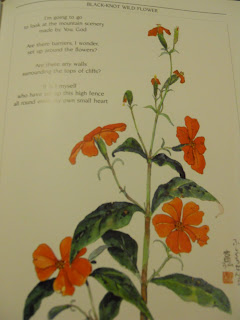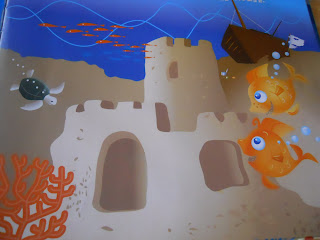Gracia Burnham and her husband we kidnapped by terrorists on May 27, 2001, while celebrating their eighteenth wedding anniversary on the island of Palawan,. They were taken hostage by the Abu Sayyaf, a militant Muslim group... a notorious al Qaeda-linked guerrilla group.
I remember when I first heard her horrendous story, and how she and her husband were taken at gunpoint from a hotel , how they spent their time with their captors traveling through the jungle for almost a year. The news media of the day apparently gave it coverage, but I don’t remember ever hearing about it on the news myself. I only heard of her story when I read her book called, In The Presence of My Enemies.
Back then, I thought it was a riveting story, and an encouraging story from a Christian perspective. It is as remarkable to me today when Gracia was a guest speaker recently at my church and seeing her in person I am sure that she is a real person. It was just as fascinating to hear her tell the tell of it again. And to impart wisdom from above that she and Martin used in their situation.
I will have to say in all honesty that there are some things about the book that make me raise an eyebrow First, as a representative of New Tribes Missions, she was not just there to visit us and encourage the believers,( though she did,) she was obviously on a speaking circuit to various churches, (had been at conference held at our church that weekend) and was no doubt raising money and consciousness for the New Tribes mission cause, (not a bad thing to be doing.) This was probably not the sole reason she was there doing what she did, but I do not know; I only know I was disappointed to learn that she has a very well rehearsed program that is given to every audience , no matter where she is at. I am disappointed too when money appears to be the main motivator behind a cause. At this point is just doesn’t seem like a very personable message. It becomes more like a commercial for her organization and for selling books. (I bought one.)
I also wonder about the Moslem connection… the love your enemies’ message. (Which is a good message…) but since 2001 all we ever hear about is treating Moslems nicely. I find it interesting to have this “love to Moslems” message be on circuit in the church. Jesus said to love your enemies and certainly that means all, not just ONE SPECIFIC group.
Also, there is a “dream” theme DREAM.. fulfillinf YOUR Dream. Seems as if people in speaking positions everywhere, (for example, Rick Warren,” he is on the "dream theme" too.,) are jumping on a “dream” theme in their talks. It sounds a little bit like the, ”God wants to give you, your best dream now,” sort of thing. The book jacket here reads, “God longs to pour his grace into people with broken dreams and fill their lives with new meaning and joy.”
Nice.
But is that the gospel?
Answer: "NO."
Answer: "NO."
And, really, is God grieved, longing to pour his grace out because I have “broken dreams.”? NO. This is not what the scriptures have to say.. not what the apostles wrote about, so it raises my eyebrow.
My eyebrow cannot help but tell my brain to think hard and long about this. Just the same, the book is easy to read and fascinating, especially if you wonder how Gracia Burnham has come out on the other side of this major tailspin in her life. The books is also filled with encouraging words to get you holding fast to scripture in your heart and points the reader following the teachings of Jesus in their own life…, especially that part about loving those you might consider to be your enemies.
It’s a good read and an encouraging word, for sure. I bought the book and before I even read it loaned it to a friend, who loaned it to a friend and then returned it and I read it.
One more oddity is that at the end of the book is an offer for download of a “Free discussion guide.” The FREE book guide can be found at www.christianbookguides.com.
The other eyebrow raises.....
It makes me wonder why it was not just included in the book. Perhaps so it can be charted who read the guide... data collection from the company, kind of thing. Perhaps it is so the material is not scrutinized? IT's hard to know for sure. But lots of books have discussion guides these days, but, my other eyebrow went up just the same. I read through the discussion questions and it was disappointing, as it seemsed like an introduction to the world of dialectics…. See http://en.wikipedia.org/wiki/Dialectic and http://www.crossroad.to/articles2/04/3-purpose.htm
It makes me wonder why it was not just included in the book. Perhaps so it can be charted who read the guide... data collection from the company, kind of thing. Perhaps it is so the material is not scrutinized? IT's hard to know for sure. But lots of books have discussion guides these days, but, my other eyebrow went up just the same. I read through the discussion questions and it was disappointing, as it seemsed like an introduction to the world of dialectics…. See http://en.wikipedia.org/wiki/Dialectic and http://www.crossroad.to/articles2/04/3-purpose.htm
I am not against discussion of books, or book discussion groups… but I don’t like making all books into a bible study.
Consider the nature of the questions:.
Consider the nature of the questions:.
Examples of the study questions:
Chapter 20: It’s Only Halftime
• If your life were compared to a basketball game, how far along are you currently? How has the game gone so far?
• Who’s going to be more honored in heaven: Jim Elliot or Bert Elliot? Or do you think they’ll be honored equally?
• Why do you think some people fade out and accomplish little in the “second half” of their life?
Chapter 21: God’s Best Is Yet to Come
• What did you think of Reverend Hartman’s little “Saturday night sermon” for Gracia?
• This chapter gives some unique definitions—or at least illustrations—of the word grace. Which ones stood out to you?
• Can you honestly accept Gracia’s statement that “God’s best is yet to come”? If you struggle with this, let the group know. Pray together about your individual futures.
They are weird sort of questions, if you ask me. I kinda think reading and studying the bible is better and wonder about those unique definitions... but overall,it is an interesting read.
Scripture warns us of perilous times, and Gracia, and Martin her husband, faced some of those up close and personal. Jesus got them both through in one way or another. Gracia points that out and points out to her readers that this world is not our home. In the meantime, while we are here, looking for that glorious day, we can always be assured that though times are dismal, God is good and he best is yet to come!
(Even if publishing companies and big business or aberrant thinking about ourselves tries to cloud our way.
(Even if publishing companies and big business or aberrant thinking about ourselves tries to cloud our way.
















